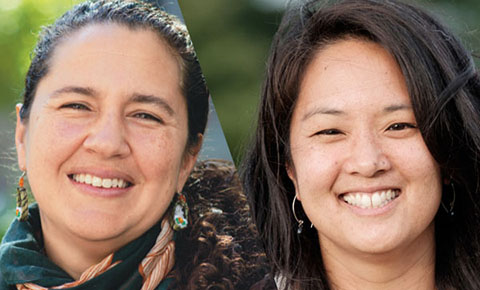Training Future K-5 Teachers in STEM

Northwestern University professor Megan Bang and alumna Carrie Tzou (PhD08) received a $1.8 million National Science Foundation (NSF) grant to better prepare aspiring elementary school teachers in the fields of science, technology, engineering, and math (STEM).
Bang, Tzou, and their team will use the NFS support to co-design an interdisciplinary, project-based undergraduate course at the University of Washington Bothell, where Tzou is professor of education. The new course will stress the importance of asking ethical questions (“can we vs. should we?”) and help students consider how different economic, social, and political contexts impact scientific decisions.
Bang, professor of learning sciences and senior vice president at the Spencer Foundation, and Tzou were recently named to the National Academies Committee on the Equity of PreK12 STEM education. The committee, which also includes School of Education and Social Policy faculty Shirin Vossoughi and Sepehr Vakil, will consider key challenges in current STEM education and draw up robust, evidence-based strategies for equitable STEM teaching and learning.
Making Science Personal
Elementary school teachers often lack the training they need to teach science. Research shows they take few college courses in physics, chemistry, and engineering; only one third have had coursework in all the areas of science they will teach.
Moreover, while the K-12 population is growing increasingly diverse, the elementary teacher workforce is predominantly female and white. Teachers say they don’t feel well-prepared to incorporate student ideas or cultural backgrounds into their instruction.
The project-based course hopes to address these issues by incorporating student ideas and experiences into conversations to make science more personally relevant. It will also emphasize content that highlights how science has been used as both a means of oppression of Black, Indigenous, and other people of color (BIPOC) and as a tool for advancement.
The researchers, who will be studying the impact of the class on student learning and science pedagogy, hope to develop an online version of the class for undergraduates, prospective elementary education teachers, and community colleges. Ultimately, a general model could be used in other contexts.
The course will be designed by a team of learning scientists specializing in equity-focused science education and science faculty from across life, physical, and earth sciences.
The project is titled Improving the STEM Preparation of K-5 Pre-service Teachers through a Project-based, Interdisciplinary Approach.